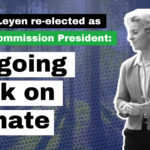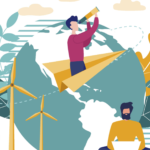Belgrade, Skopje – 23 April 2024
In the settings of Skopje City Park and Belgrade fortress Kalemegdan, CAN Europe launched a public campaign advocating for the use of Renewable Energy Sources (RES) to a local level, sparking discussion and raising awareness about the need and possibility of transitioning from coal based energy to renewables while increasing energy efficiency for everyone.
On this occasion, CAN Europe presented the interactive artwork piece “Vrtež” ( Rotation) by Aleksandar Eftimovski, sparking interest among the public about the interrelationship between environment, energy resilience and human creativity.
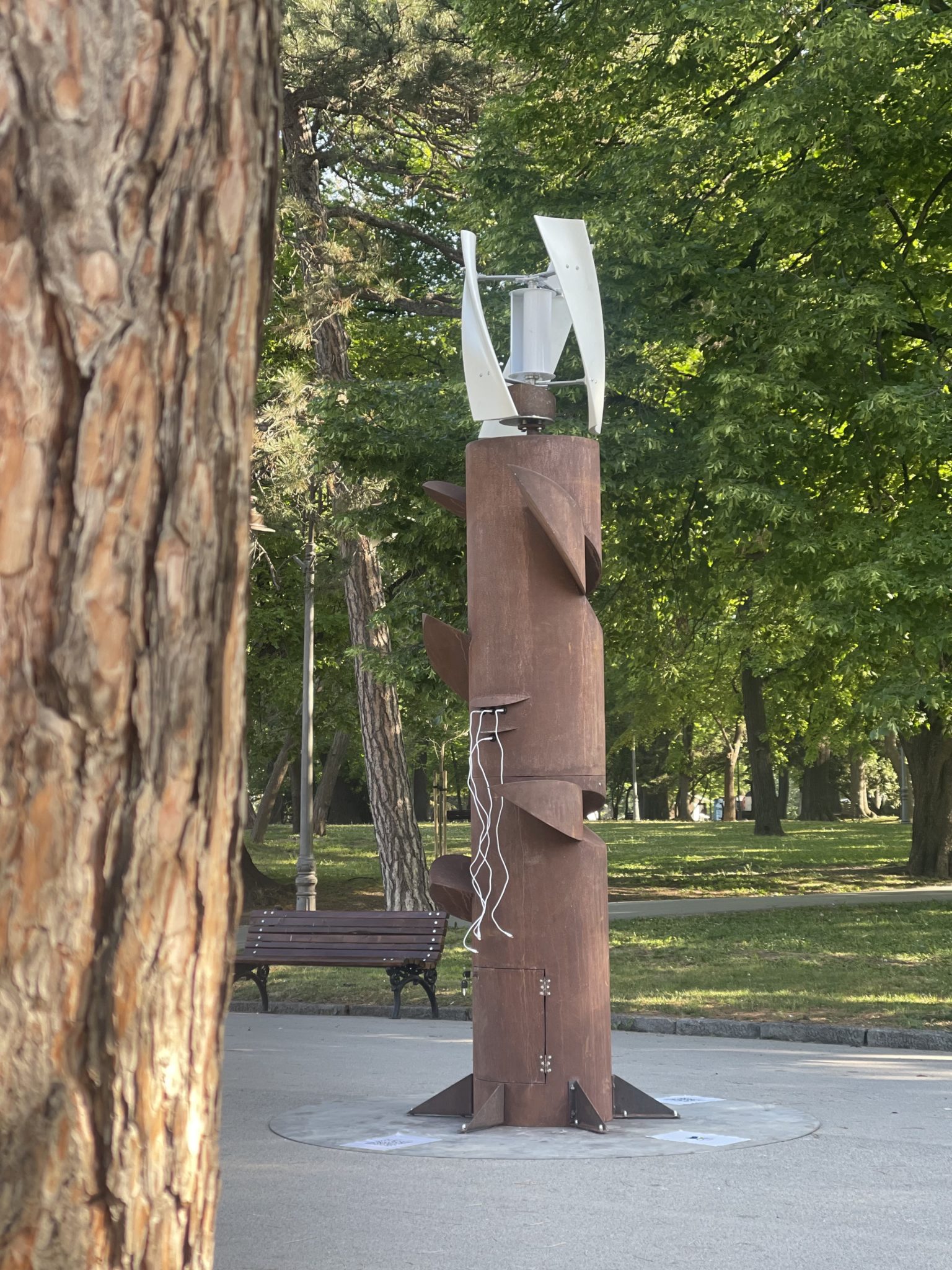
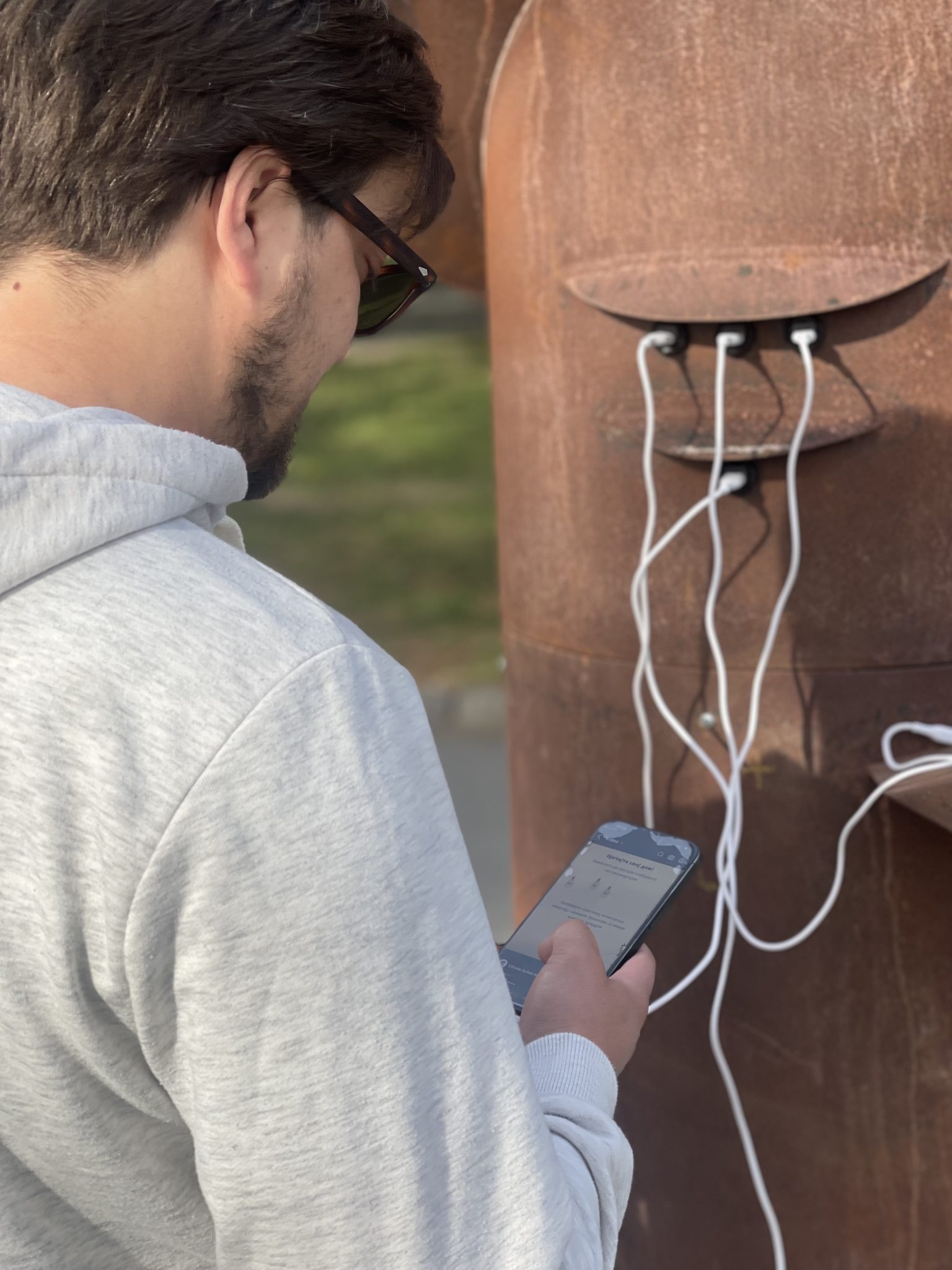
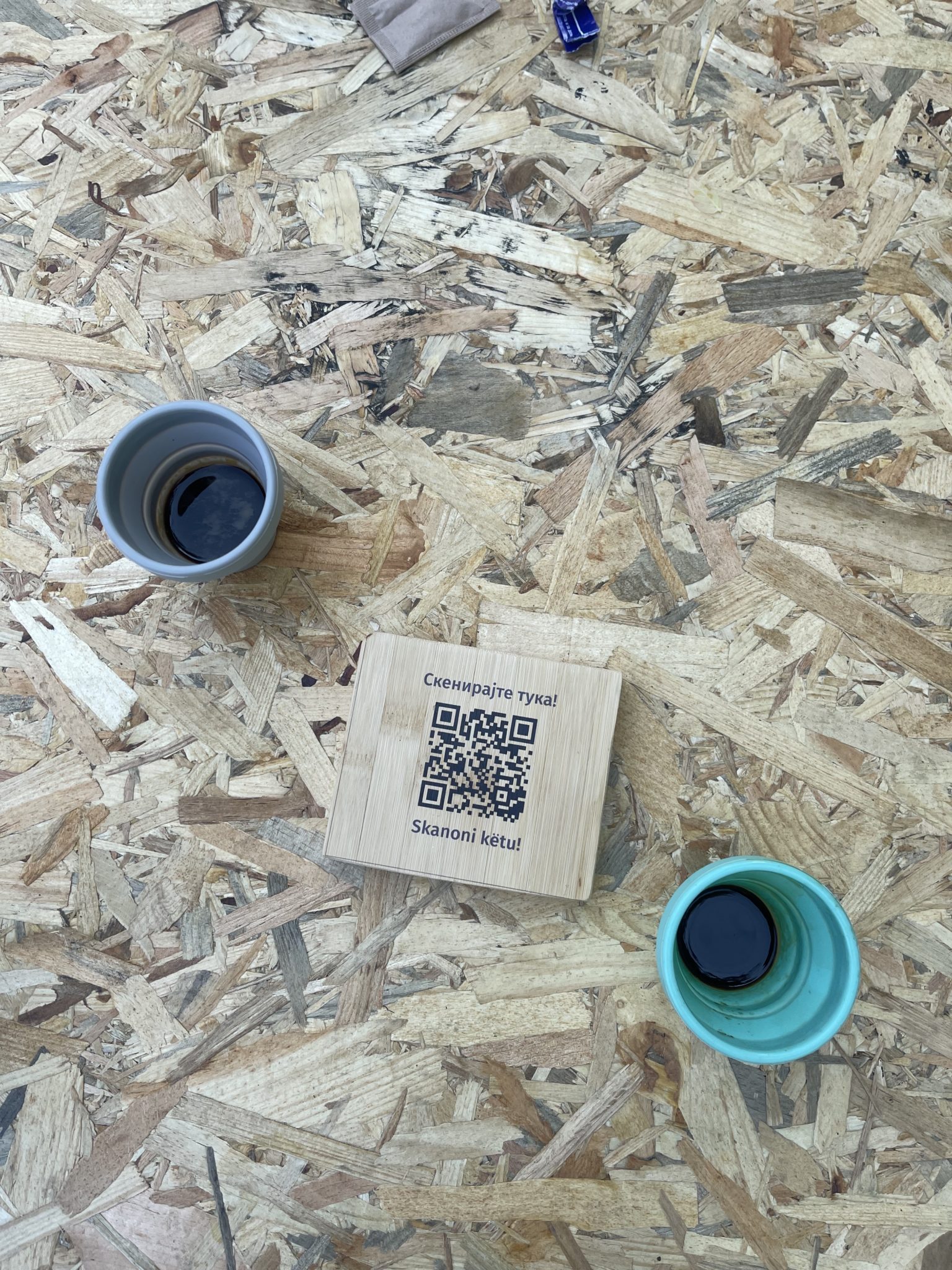
The exhibitions highlighted the shared potential of North Macedonia and Serbia, as well as the wider Western Balkan region, for the full utilisation of renewable energy sources and a comprehensive and just transition toward an efficient and resilient energy mix and away from coal.
CAN Europe, through a comprehensive study analysing the current barriers to the full deployment of RES in North Macedonia and Serbia, highlighted how some level of progress has been made in establishing institutional and legislative frameworks aimed at boosting the use of Renewable Energy Sources, but challenges in their full utilisation persist.
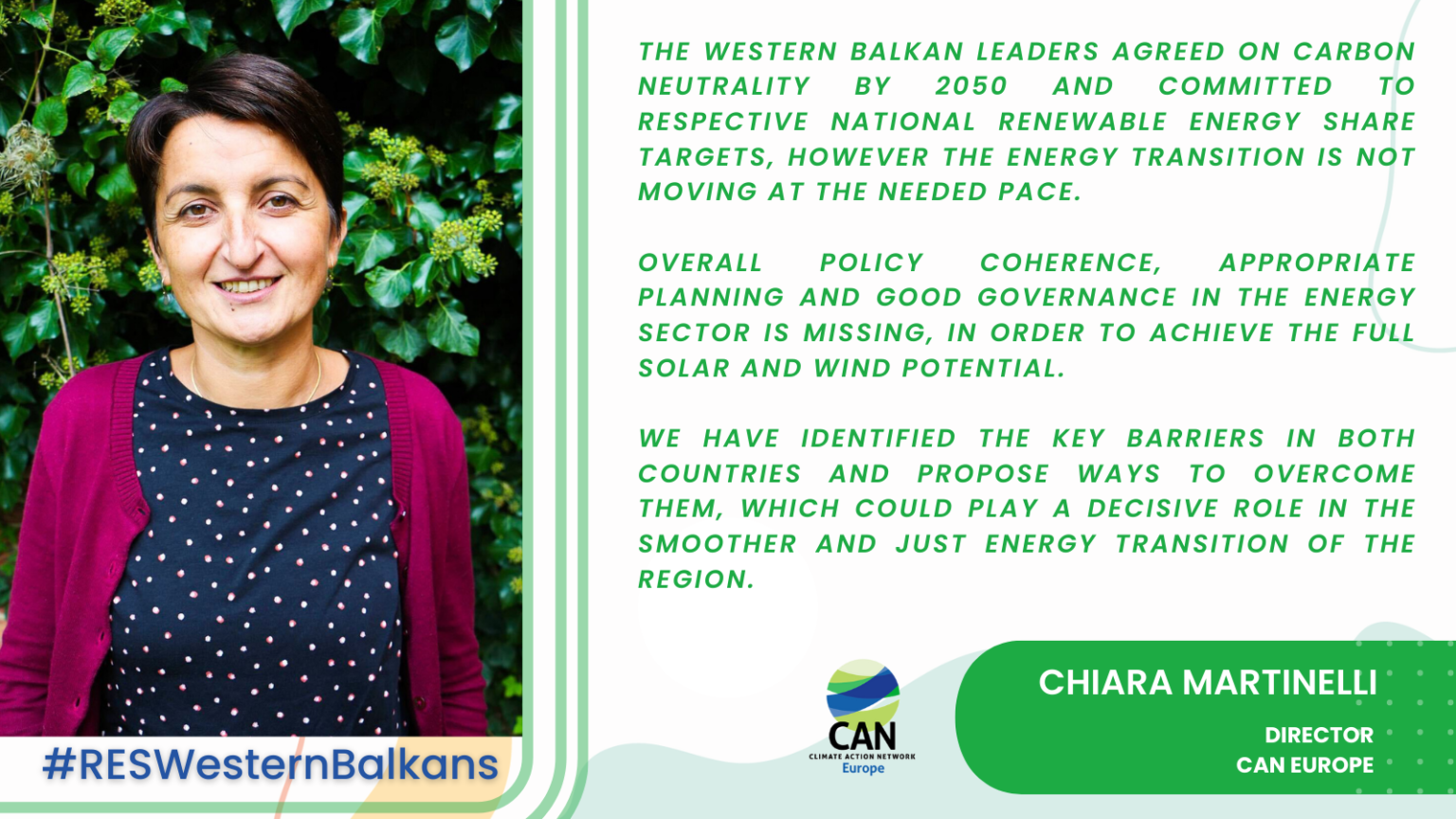
Made completely of recycled materials, the exposed art piece consisting of an interactive windmill, aims to bring a concrete example of how renewable energy can be integrated in our daily lives.
Through the power of the wind, the windmill has the capacity to fully charge up to four different connected phones simultaneously, showcasing the practicality and need for accessibility of renewable energy in our everyday experiences.
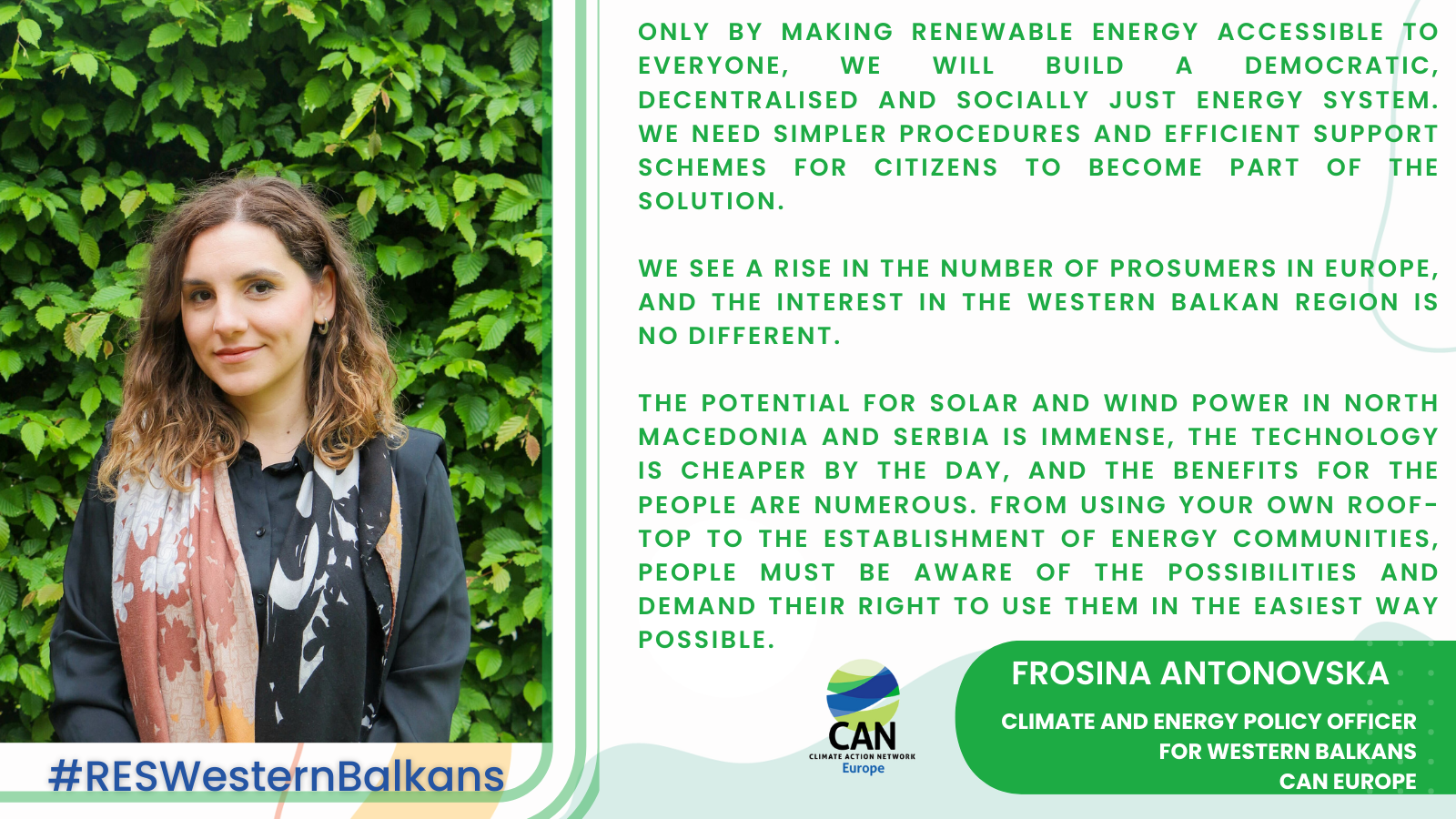
Despite the promising recent increase in RES projects both in North Macedonia and Serbia, there is still a need for improved governance and direct support to enable citizen prosumers, vulnerable consumers, energy communities and cooperatives to participate and partake in RES projects.
This is essential for advancing towards the goal of establishing a 100 per cent renewable energy landscape in both countries, and striving for a just energy transition that ensures no one is left behind.
Previous slide
Next slide
Previous slide
Next slide

